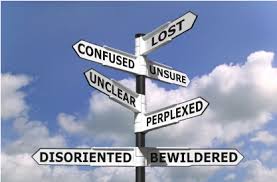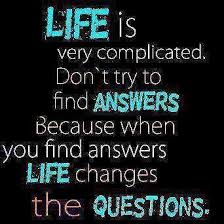 Sometimes I wish life was less … nuanced. Complicated, in other words.
Sometimes I wish life was less … nuanced. Complicated, in other words.
I wish I didn’t feel I have to vote w/ my $$ when companies aren’t ethical. Since $$ are all many US corporations seem to value, I’ve started publicising their choices, and asking others to join me in refusing to support bad choices w/ our money. That part seems simple.
So I don’t buy at WalMart. Their attitude towards unions, and workers in general, is at best hostile. At worst? It’s aggressively so. They also don’t pay living wages, and say it’s my fault as a consumer. Hmmm.
I also don’t buy at any company that demonises same-sex relationships, or insists that workers follow the CEO’s idea of religion. Not Constitutional, but also not moral, by my book. So I don’t eat Chick-Fil-A, or support Home Depot.
And then there’s Amazon… Amazon is (of course!) complicated. As this article explains, Amazon is rapacious. As bad as WalMart, even with its workers (the article links to a 2nd article on Amazon’s treatment of its workers). Not to mention that Jeff Bezos — the man who both birthed & now embodies Amazon — was named World’s Worst Boss by the International Trade Union Confederation. For, basically, exploiting workers who have limited to non-existent choices of other work.
Despite how some of my colleagues tease me, I’m not anti-business. I’m also not anti-profits. I am strongly anti-profiteering & exploiting workers. When you refuse to provide humane working conditions (114˚ in a warehouse where you have 20 seconds to find an item, in the 16 football fields of the warehouse; see above links), you’re exploiting workers. When you pay them the least you can get by with, place the warehouses in right-to-work states (one’s going in down the highway, here in Oklahoma), so the workers have no legal rights to speak of…? I have issues w/ all of that.

Pretty clear-cut, right? Bear with me.
It’s not that simple, because Amazon also provides a lot of great services & technology. It’s revolutionised reading for kids, for adults, for many who didn’t read earlier, w/ the Kindle. It’s provided work for a lot of people who would rather take these awful jobs than not have jobs at all. It provides rural America w/ access to goods that are lacking in most small American towns. These are good things. And while it’s not as green as I’d like, that’s also subject to messy complication.
So I’m trying to figure out how to negotiate this complication, as I did WalMart (which happens to be a very green corporation). I buy tires at Sam’s, a WalMart subsidiary, to support their green initiatives. I don’t buy from WalMart, because of their worker policies.
Each of us draws our own line in the sand. The line may be straight, but I’m here to tell you: figuring out where to draw it? Messy. VERY messy.
I can’t tell you, yet, what I’ll do about my conflicted relationship w/ Amazon. I’m still giving it serious, headache-producing, thought. And coming up with more questions each time I consider. Probably that’s growth. Messy, right? And very complicated…

